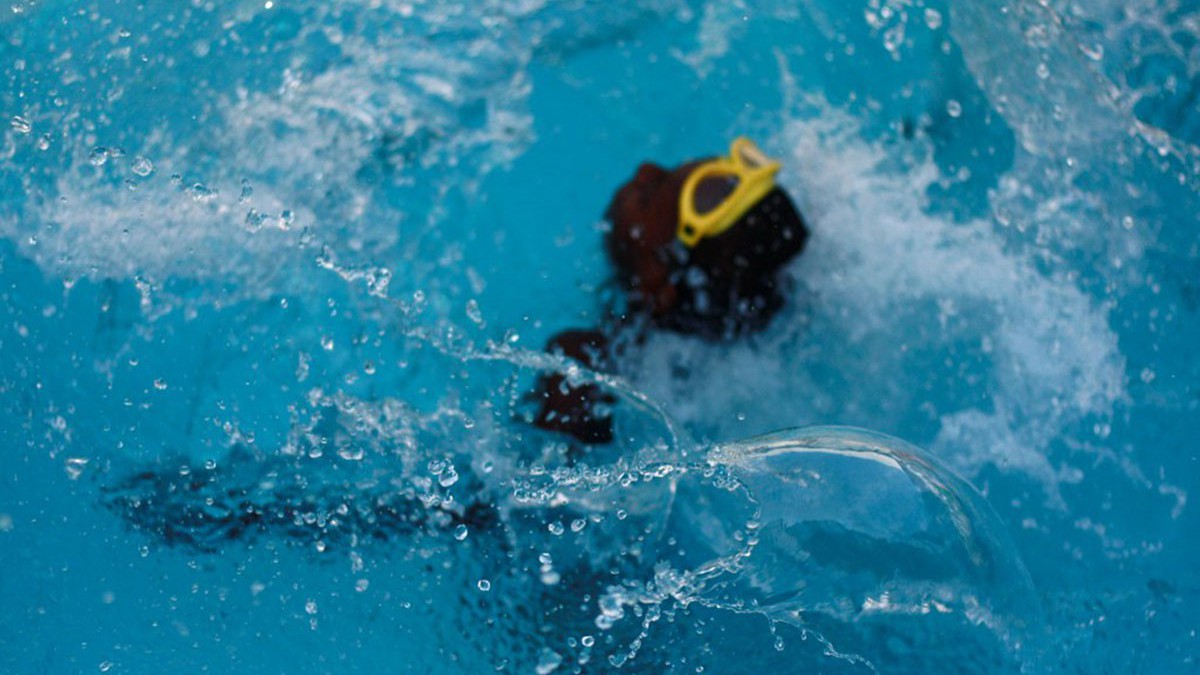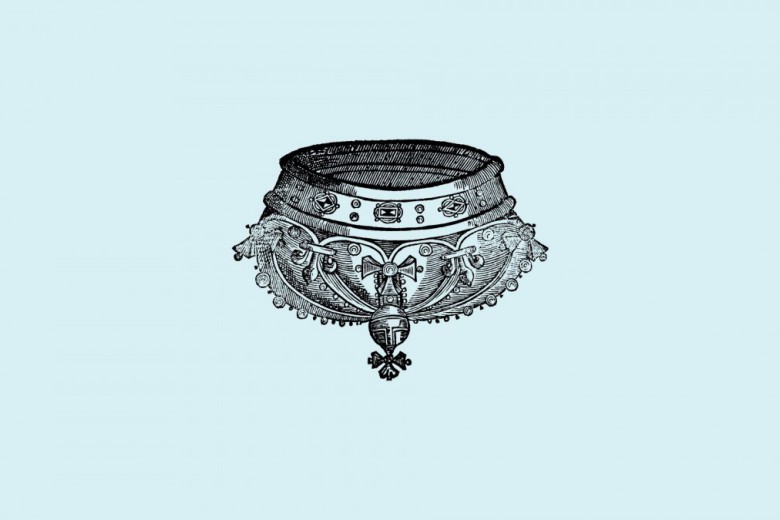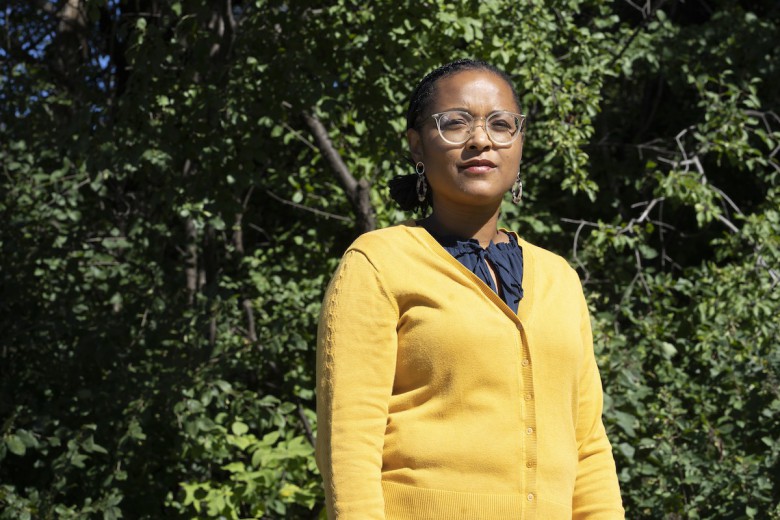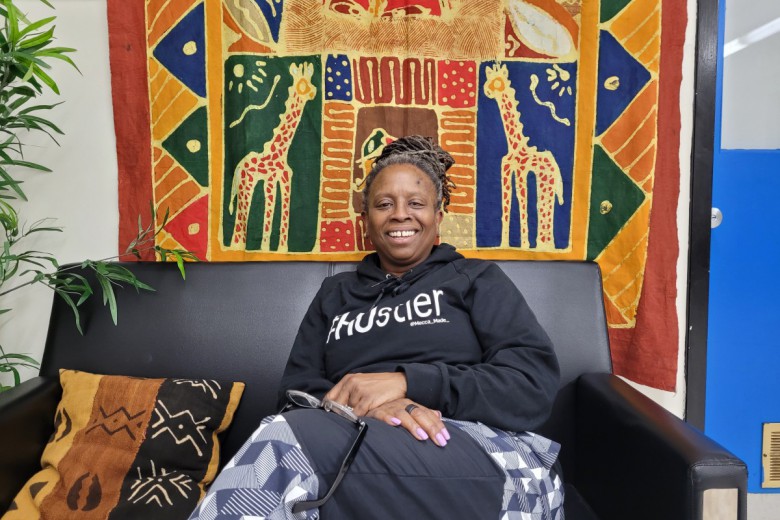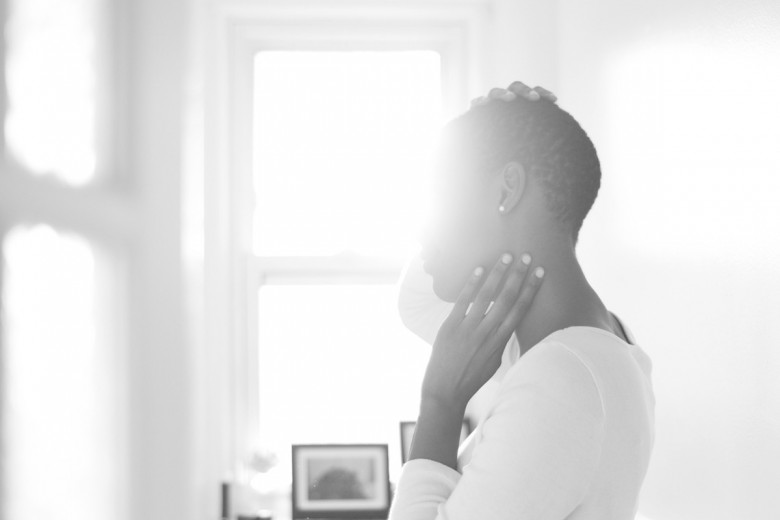The warning on my kickboard reads: “Warning: Swimming aid only. Not a life saving device. Use only under adult supervision.” It has always struck me as ironic. Its life-saving capacities are quite real, and its uses have often been other than those for which it was designed. I’ve shielded myself from and struck a number of bellicose white men with it. Swimming pools have proven to be cesspools of racial animus and toxic masculinities. If you’re not Black you probably missed the significance of the swimming pool and water in Beyoncé’s Formation video. One of my mother’s parenting #goals was that her children be able to save themselves in large bodies of water. She was born and had grown up under British colonial rule in Mauritius (the island achieved independence only in 1968, the baggage of coloniality still a burden today), as a member of the disenfranchised and formerly enslaved Afro-Creole population. She saw white people, descended from plantation owners who had built their fortunes on the backs and out of the wombs of her ancestors and whose white children were raised by her brown grandmothers, build fences into the sea in order to privatize entire swaths of the island’s pristine white sand beaches and keep Black and brown bodies out of sight. She saw and knew of community members and friends and kin who were carried away like driftwood and drowned in the Indian Ocean’s turquoise waters for lack of basic swimming skills. Colonial subjugation and racist marginalization is always apparent in knowledge willfully withheld by white supremacist oppressors. Stories of drowning were part of the collective narrative, and her migration to a world away from the island didn’t dull a certain apprehension vis-à-vis Canada’s lakes, swift flowing rivers, muddy ponds, seasides, and the treacherous embankments of slithering creeks.
She saw and knew of community members and friends and kin who were carried away like driftwood and drowned in the Indian Ocean’s turquoise waters for lack of basic swimming skills.
I’ve always loved the water and took to swimming easily. My brother and I were greased from industrial sized tubs of Moisturel three times a week, before and after Red Cross and private swimming lessons, and scrubbed down with Johnson’s baby shampoo and variegated blue sticks of heavily scented Fa soap as soon as we exited the pool – wasn’t no way Mama’s babies were gonna turn ashy and start smellin’ of chemicals from the white man’s chlorinated pools. Much later, my brother worked as a lifeguard, we got our water instructor and National Coaching certificates, and I swam for the University of Calgary Dinos and on the provincial and national junior Modern Pentathlon teams. I’ve stared at thousands of tiled black lines, cruising up and down my share of Olympic- and community-sized swimming pools.
One of my first locker room memories is of a livid, naked white woman flanked by her friends in the women’s change room of the Glenmore Aquatic Centre in Calgary, yelling at my mother – my roly poly three-year-old baby brother and myself, no older than five, both wrapped in towels, stunned and clinging to her legs as she stood her ground, steely-eyed and unblinking. We watched the flaccid pink flesh, so different from our mother’s brown body that was firm and soft in all of the right places, shake with pornographic anger; the thin, bloodless lips hurling accusations in deliberately broken English so that our thick immigrant heads might understand that brown male children weren’t allowed amid pink ladies and that if the brown immigrant woman insisted to the contrary, they would be sending her brown female child to the white men’s change room by herself. The violence of white people always ends up tripping over well-rehearsed tropes of racialized sexual fantasia and brutalization – it is, after all, an important play in their handbook of white domination and global colonization. The revenge fantasy par excellence of sexually repressed pink flesh.
One of my first locker room memories is of a livid, naked white woman flanked by her friends in the women’s change room of the Glenmore Aquatic Centre in Calgary, yelling at my mother.
I was 18 and away at a winter training camp in Red Deer the first time I screamed in the middle of a public pool. There had been a booking problem and our pentathlon team had been forced to train during public lane swimming times. A white woman had taken it upon herself to antagonize me as our squad had started a kick set. She accused me specifically of kicking too hard and getting her hair wet. The splashing caused by the rest of my teammates’ all-white legs apparently caused her no trouble. She hissed and spat invectives every time I passed her. Our white coach was off flirting with a white lifeguard. My white teammates chose to see nothing. I had had enough. I stopped kicking in the middle of the pool and did the only thing I had learned would shut white people up and send them crawling for cover – public shaming. I started screaming at the top of my lungs in the middle of the pool of the Michener Recreation Centre in Red Deer, Alberta. I screamed about being attacked by a racist white woman. I screamed about being denied the physical and psychological inviolability and the legitimacy of place of my white teammates. I screamed with 500 years of racist anguish, oppression, apartheid, and injustice on my teenage shoulders. The pool went silent. People gawked, discomfited and terrified. The philandering coach and the lifeguard rushed to the side of the pool. The racist blubbered through the requisite I-am-not-a-racist operatics. She got kicked out of the pool and all of the whiteness around me did its darndest to cling to the fiction that nothing had happened. I shook with anger well into the evening. My teammates and coach ignored me, white stasis restoring itself on my back. I stared at the wallpapered abstractions of a Holiday Inn hotel room that night – angry, wired and numb, willing myself to sleep, counting the kilometres that separated me from my mother.
I screamed with 500 years of racist anguish, oppression, apartheid, and injustice on my teenage shoulders. The pool went silent.
After moving to France, I soon found myself embroiled in a standoff with the parks and rec arm – helmed and staffed almost exclusively by white men – of the municipal council of Blois and its greater urban areas, after challenging mis-management and pointing out gross behavioural problems at the pool I frequented. Word had it that I had been labelled “the crazy Canadian cunt” by this upstanding enclave of patriarchal white men, and matters were resolved (hushed and spirited away) only by virtue of the fact that my white in-laws have a long-standing history and reputation in the town’s sporting milieu.
When I bring up the homogeneous whiteness of the pool population at Mount Royal University’s aquatic centre in Calgary, where I now train, I am roundly ignored. When I point out hostile and colonizing behaviour by white cis men at the pool and how this creates a toxic and unwelcoming space for all who do not qualify as white cis men, I am roundly ignored. When I point out the large berth of benevolence that is accorded these white cis men when they continually violate basic regulations, the university’s recreation administration thanks me for my feedback and sits on its ass. When I point out their inertia as proof of their total investment in white supremacist logic, well, you know the rest of that rhyme.
In multiple pools on both sides of the Atlantic, I have been spat at, and insulted. I’ve had body parts deliberately grabbed in an effort to hinder my movements. I’ve been interrupted in the middle of training sessions, been talked down to, been talked about, been told that I didn’t belong, been questioned, been complained about, been imposed upon for free counsel and training advice, been ignored, been denied, been dismissed, been hissed at, been the object of attempts at intimidation. I am and have always been, except on very rare occasions, the only melanated body and the only melanated female body in the pools I have frequented. I know that swimming pools have historically been the privileged domain of whiteness, whether explicitly or implicitly. I know that racial segregation was as natural as breathing air in Alberta until 1959. I know that Blacks were barred from public pools, skating rinks, hospitals, schools, theatres, hotels, and bars. I know that Black and brown bodies hampered in water, drowning Black and brown bodies, absent Black and brown bodies are required for and useful to whiteness. I see this Jim Crowed reality every time I enter a pool and my fast and skilled brown body is punished in varying degrees when I come and contravene white aquatic segregation, white exclusivity, and white superiority.
I know that Black and brown bodies hampered in water, drowning Black and brown bodies, absent Black and brown bodies are required for and useful to whiteness.
If I have continued to swim, well after quitting the competitive circuits, it is because of a long-abiding love of the sport and the joy I have always felt in moving through and being moved by water. If I continue to swim it is through sheer endurance and it has required enormous amounts of will and strength of spirit. This has been accomplished in spite of white racism and racialized misogyny’s hegemonies, and it has been extremely taxing. I now have to swallow anti-histamines before hitting the pool in order to prevent shock, allergic reactions, and things more sinister. What the doctor has diagnosed as cold immersion urticaria, I see as the effects on my body of three decades of internalized racist trauma tacked onto generations’ worth of white supremacist ordeals inscribed in my DNA. I have to believe that every time I enter these waters, these spaces where I was – where we were – never meant to be, I am alleviating inflicted ancestral wounds and easing the path for those to come. I have to believe that.
This essay was the runner-up in the creative non-fiction category of our ninth annual Writing in the Margins contest. Creative non-fiction entries were judged by Joshua Whitehead. We gratefully acknowledge the financial support of the Regina Public Interest Research Group (RPIRG) to this year’s contest. Briarpatch will be accepting entries for the ninth Writing in the Margins contest in September 2020.


